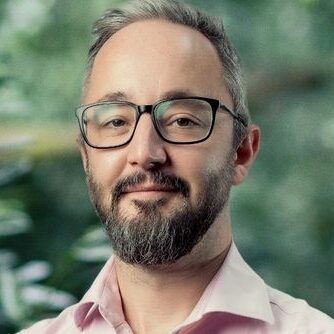We are delighted to welcome Leo Murphy, Impact Manager at Climate Asset Management, as the new co-chair of the Impact Assessment working group, bringing extensive experience in environmental management, nature-based solutions, and natural capital.
His science-based understanding of biodiversity impacts and dependencies is integral to this working group’s work on measurement approaches and tools, data development, and best practices. Having him on board and coordinating the upcoming impact assessment initiatives going into 2025 is fantastic. In this exclusive profile, we explore Leo’s vision for the future of biodiversity finance, his leadership approach, and the key priorities he identifies for the Impact Assessment Working Group.
Join us as we gain insight into the aspirations and expertise of a leader committed to fostering impactful action for biodiversity, making Leo uniquely placed to lead the group in driving meaningful change.

1. Why do you believe assessing impact is a critical step for the finance sector to address biodiversity challenges, and what are the most significant opportunities to influence meaningful action?
Impact assessment has to be the first step to effectively tackling biodiversity loss. Whether we are trying to understand where in our portfolios we should focus efforts to reduce negative impacts or trying to assess the effectiveness of our investments in nature restoration, being able to assess the outcomes is essential to ensure we can make informed decisions, set the right priorities and finance flows to the right places. There are many approaches and opportunities to do this depending on the financial institution, so it’s a case of ensuring the right tools are in the right hands.
2. How has your professional experience prepared you to co-chair this group effectively?
Coming from the world of ecology rather than the financial sector, I’ve been lucky enough to have worked across the spectrum of biodiversity assessment, from developing high-level screening tools like ENCORE to on-the-ground, project-level impact assessments. I’ve also worked with different sectors, from mining and tourism to agriculture and finance, as well as with national governments and intergovernmental organisations. I’m looking forward to bringing this range of experience to the working group to help us develop an understanding of where we can draw from others and where we need to focus our efforts to develop bespoke solutions.
3. What key outcomes or milestones will the working group work towards achieving under your co-chairmanship, and how will you work with stakeholders to advance the group’s objectives to contribute towards broader systemic changes?
Thanks to the great work already done by the working group in 2024, there are lots of exciting initiatives in the pipeline for the coming year. I am particularly excited about the continued development of the Act Now! guidance to help support users in selecting the most appropriate tool from the ever-expanding list of impact assessment approaches to suit the needs of both their organisation type and the decision they are looking to inform. I am also keen on integrating positive impact into our assessments, shifting the narrative from just minimising the negative impacts of finance towards how finance can be a force for biodiversity good.
I’m looking forward to working with the active and engaged working group members and learning from the unique perspectives and experiences of our respective organisations.
4. What are your aspirations for the future of biodiversity finance, and how can the Foundation help accelerate progress?
My aspiration for biodiversity finance is that it won’t be biodiversity finance at all in the future. Instead, we can embed these considerations so deeply that finance inherently considers biodiversity in decision-making in the same way we do tax or compliance. Achieving this is too big for any organisation to tackle, and the Foundation has a vital role to play. It brings together leaders in the finance sector and subject matter experts and creates a much-needed, open, and honest forum to scale our successes and learn from our failures.
About the Impact Assessment Working Group
This working group is connected to the third Pledge commitment: assessing impact. Working group members share case studies, developments on data and tools and best practices and lessons learned regarding different biodiversity measurement approaches.
Read more on this Working Group here.
